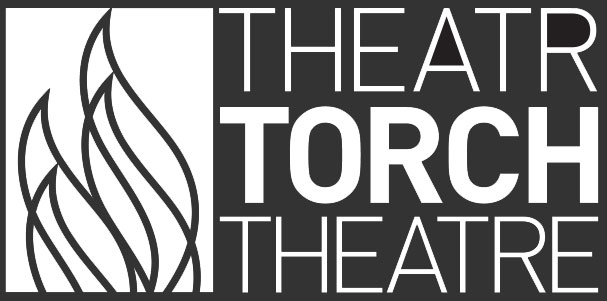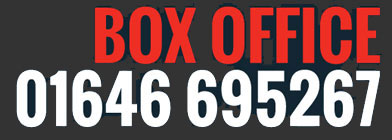A CATCH UP WITH BETHAN ELERI, STUNTWOMAN, ACTOR AND FIGHT DIRECTOR
With less than two weeks to go before Private Lives hits the stage at the Torch Theatre, we sent our roving reporter Anwen to do some digging. Anwen caught up with actor, stuntwoman and fight director Bethan Eleri who is working on the production of Private Lives.
Well …. your job title in itself sounds so interesting. Tell us a bit about what you do.
I work as an actor, across film, tv and theatre, I work as a stunt performer in mostly film and tv and I also work as a fight director in theatre and film, and an intimacy director in theatre.
Work in this industry can be sporadic so having a few different strings to my bow allows me to stay in the industry I love and mix it up from being on stage or in front of the camera to being behind the scenes and off camera. It’s great to experience both.
Fight directing is essentially choregraphing a fake fight or moment of violence that looks real and is believable to the audience.
Intimacy directing is a very new role in the industry and has only really been a titled role post the #METOO movement. It’s a role designed to support both the actors and crew, ensuring they are all comfortable and safe during intimate moments. We create a piece of chorography that has both the story and the actors in mind.
How did you get into this role, why and when?
My career began before I knew it really. I grew up doing a lot of sport. It had always been a part of my life. Competing in swimming, netball and hockey matches throughout my school years, later led me into stunt training. As for getting into acting, it began at the Torch Theatre’s Youth Group, led then by Dave Ainsworth. I was a shy child, and this grew my confidence as well as igniting a love for performance and the career I now have.
The realisation I could turn my ‘hobby’ into a career came from my wonderful drama teacher at Milford Haven Comprehensive, Sarah Batten. She gave me my passion for theatre, she allowed me to see the magic of what happens when creating a show and bringing all the elements together. She helped me understand the power of body language and the beautiful complexity of text. I then went on to train at the Royal Welsh College of Music and Drama, at the Young Actor’s Studio (YAS) every weekend for a year while studying for my A-levels. From there, I went up and down the UK auditioning for a place at drama school, where I could develop and train as an actor, and was accepted by EAST 15 Acting School. It is there, I developed my skills as an actor, but I missed that element of sport in my life.
One day we had a specialist come in to teach us how to sword fight, and that was it, I fell in love with it. I continued training in sword-fighting, then began marital arts, archery, boxing, and a lot more. When I graduated, I worked as both an actor and a stunt performer and began assisting fight directors at places like the Royal Opera House in London, and drama school productions across the UK and enjoyed every moment of sharing and helping others learn from the skills I had gathered throughout the years. I continued assisting as a fight director and when I had trained enough, went into fight directing on my own. While being in the industry, I would often find moments of violence were mixed with moments of intimacy and so I knew it would be important to train in this area too. Often working as an actor and fight director you would see people getting uncomfortable with these intimate moments because it was just expected of them to just to go for it. So, I began training as an intimacy director and found that, as suspected, the jobs went hand in hand. Often when hired as a fight director, I am also hired as an intimacy director.
How would someone pursue a career like yours?
Regarding acting, I would encourage anyone to train. This can be at a well-established training class and/or drama school. Classes such as the Royal Welsh’s Young Actor’s Studio, would be a good start for example. A few drama schools, offer bursaries and scholarships, so I’d look into those, that’s what I did. A few are attached to universities so you would go through the process of student loans, as you would for a university course. It’s important to train so that you learn technique and gain experience.
As regards Fight Directing, training in stage-combat and combat for film is essential. You need an in-depth understanding of the techniques, moves and safety elements as well as knowing the difference between stage and film. There are many classes that offer training in specific stage-combat skills, going to these and earning a certificate in each of them is a good start. After this, you can assist a fight director or stage-combat teacher. This will allow you to learn how to communicate the skills you have learnt and how to put them into practice. You can then continue to develop this career through experience or train with Equitys’ Fight Directors Register.
Regarding stunt performing, it’s all about training, training, and more training. There are so many elements to learn and skills you must perfect for a chance to work as a stunt performer.
I trained intensely for four years and continue to add and refresh my skills even now. My skills vary from stage-combat weapon training, firearms, archery, swimming stunts, fire stunts, wire-work and high falls.
To start a career in the stunt-world, I would take a look at the BSR (British Stunt Register) guide, to see all the different skills sets needed. I would then suggest starting your training with stage-combat classes, it will give you a good base of understanding and knowledge and from there your teachers will suggest more training for you.
Regarding intimacy, like I said it is a very new role, so there are currently less opportunities or training facilities but that is beginning to change. You can apply for online courses in intimacy directing, and now can do a year intensive course at a few drama schools in this subject. I would suggest learning the importance of body language and how it can tell a story. Following that, I would start with online workshops, before doing intense training at a school or in classes. This will set you up to have a great understanding before you begin. Once you’ve got some training under your belt, you can begin assisting an intimacy director, this will help you understand how to communicate in a workplace and put your skills into practice.
What is your role in Private Lives and how challenging is it?
I’m working as both a fight director and an intimacy director here at the Torch. For anyone who knows the play, you’ll be aware that there are a lot of intimate moments and the whole of Act Two is essentially one big fight scene.
I think the challenge of directing the moments of intimacy and violence in this play, is that it is dated and so are the views, and stage directions at times.
After speaking to Chelsey (Artistic Director) and knowing her angle on the piece, I set about adapting and changing the focus especially for the fight elements of the play.
I wanted to create a fight that showcased the female characters being just as vicious and violent as the male characters in the play. We have Amanda fighting quite cat-like, quick instincts, claws, and bites etc and Elyot using his strength and force, both are equally as brutal. We wanted to do this, so that the characters are equal, and the fight is nothing to be laughed at. It’s been a great challenge and I’ve had a lot of fun creating this fight.
What other productions have you worked on?
As an actor and stunt performer I have worked on many productions across stage and film. Some notable ones are Misbehaviour starring Keira Knightley and Enola Holmes 2 starring Millie Bobby-Brown and Henry Cavill. I have also worked in theatres across the UK, in plays like Cranford, Twelfth Night, The Taming of the Shrew and Hamlet. I even toured a production of Wuthering Heights across China, performing in some of the most incredible theatres they have to offer.
As a fight director and intimacy director I’ve worked at The Royal Opera House (London), at notable drama schools such as East 15 and GCSA. I’ve also worked on productions of Shakespeare’s brutal Macbeth, and Hamlet, and I’ve worked on music videos and short films across the UK.
Have you worked at the Torch Theatre before?
I performed at the Torch Theatre as part of productions when I was a child, in Shakespeare festivals and part of am-dram groups, but I’ve not worked at the Torch before. It’s wonderful to be back here. Growing up in Milford it was my only connection to the land of theatre, and I’m very grateful for its presence in my life.
Do you have to be fit and train a lot for your job?
It can be very demanding physically and can ask a lot of your body. So, in short yes, you should be fit to do this job. I trained intensely for four years on stage combat, archery, fire-arm training, boxing, marital arts, gymnastics and much more. I have continued training since, and regularly have to update my skills or learn new techniques. I try my best to stay fit by training and eating healthily, which helps when I have to jump into a physically demanding job.
What is your best part in Private Lives?
Well, it has to be Act Two’s fight scene. It has been a lot of fun creating and developing and I’m looking forward to seeing how the audience reacts.
TORCH THEATRE NEWSLETTER
Get in the Spotlight!
Want to be the first to hear about upcoming performances, exclusive ticket offers, and behind-the-scenes action at the Torch Theatre? Subscribe to our newsletter and let the drama come to you.



